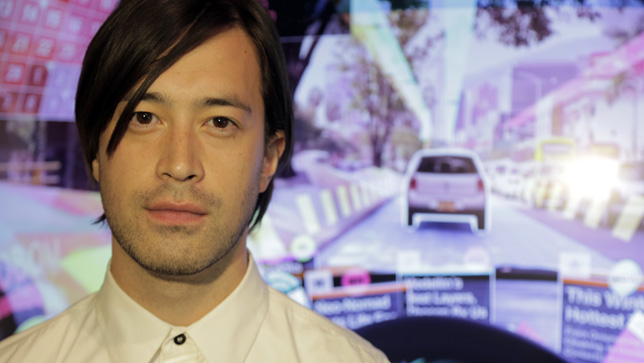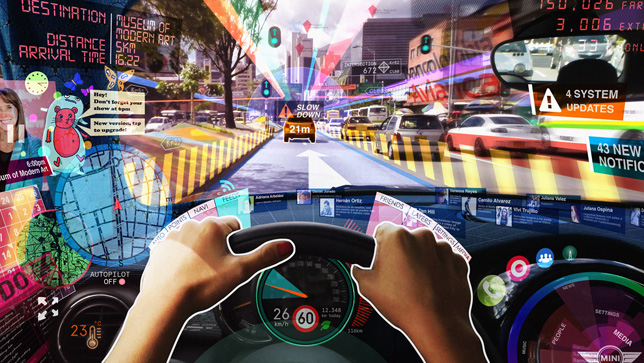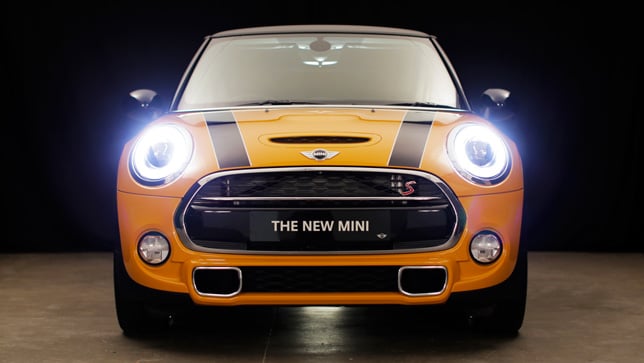Advances in digital technology could make "time travel possible"
Dezeen and MINI Frontiers: advanced 3D mapping of our built environment could one day allow us to "stop and rewind time," claims London designer Keiichi Matsuda (+ movie).
Once digital mapping services such as Google Street View have become sophisticated enough, we could "jump to any single point in history since it was being recorded," Matsuda suggests.
"If you take [Google Street View] to it's logical conclusion it means that everything is live video," he explains. "You'd have a live map of the world, essentially. If [the world] was all being recorded, you could stop time and you could rewind time as well."

Virtual or augmented reality headsets, like Oculus Rift or Google Glass, could make the experience much more immersive than simply watching something on a screen. We could overlay the real city with digital footage from the past, Matsuda says, so that "essentially, time travel becomes possible."
Matsuda originally studied architecture, but became disillusioned with the profession and now works in a variety of media to explore how new technologies affect our daily lives.
"Whenever a new technology comes out, I instantly start to think where that could lead to," he explains. "You take it to its logical conclusion."

For the Dezeen and MINI Frontiers exhibition he produced a film looking at how ubiquitous augmented reality could transform the way we navigate cities, with signage and directions digitally superimposed onto the streets.
The exhibition took place at designjunction during London Design Festival from 17 to 21 September 2014.
Dezeen and MINI Frontiers is a year-long collaboration with MINI exploring how design and technology are coming together to shape the future.

